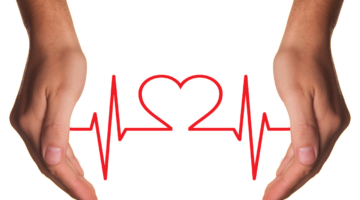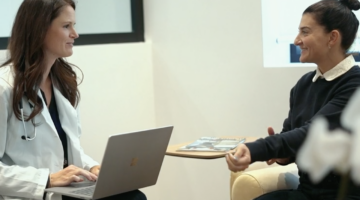Fitbits and Nike FuelBands are great in that they have opened up a huge market for wearable self-tracking devices, but in medicine, taking that concept a step further is what’s really going to save lives, according to Leon Eisen, founder and CEO of Oxitone Medical.
Oxitone is developing a clinical-grade, wrist-worn device that continuously monitors a patient’s heart rate and O2 saturation and detects changes that could indicate early signs of hypoxemia, or less-than-safe levels of oxygen in the blood. These are especially important metrics for patients with COPD and congestive heart failure, Eisen said, which are the first two markets the company is going after.
Typically, clinicians use a fingertip pulse oximetry device to monitor at-risk patients. But that’s problematic in that wearing a device clipped on the finger for long periods of time is uncomfortable and unrealistic for everyday use. Oxitone’s device takes the same approach as those devices, but uses a different configuration of optical sensors and electronics so that it can measure 02 saturation at the wrist rather than at the fingertip.
A small screen on the device, which at this point is a functional prototype and is undergoing miniaturization, displays a user’s oxygen level and pulse rate. Meanwhile, that information is also transmitted to the cloud through a mobile device. If a person’s O2 levels drop below a certain level, Oxitone automatically sends out alerts to pre-identified family members or caregivers and a trained agent, who could then call for emergency responders.
“Our goal is to make preventative alerts, not just reactive,” Eisen said.
The company tested the accuracy of the device at a hospital in Israel and found that, in about 300 tests, it was able to measure oxygen saturation within an error of +/- 3 percent, or within the FDA’s requirements, he said.
The initial version of the device will retail for about $200 and could be on the market by 2015 if the company can raise the $3 million it thinks it needs to get through the remaining steps, including 510(k) FDA clearance.
To help it get there, OxiTone is participating in a three-year entrepreneurship program run by StartUp Health and GE. Eisen pitched at the startup challenge at the Medical Innovation Summit Monday.
Eventually, Oxitone imagines that the device would also monitor a more thorough set of biometrics including sleep patterns and activity patterns, to give responders and clinicians a more complete picture of a person’s condition. It would also reach other markets, like severe sleep apnea, and include a provider interface that would allow a clinician to keep tabs on the patient.










